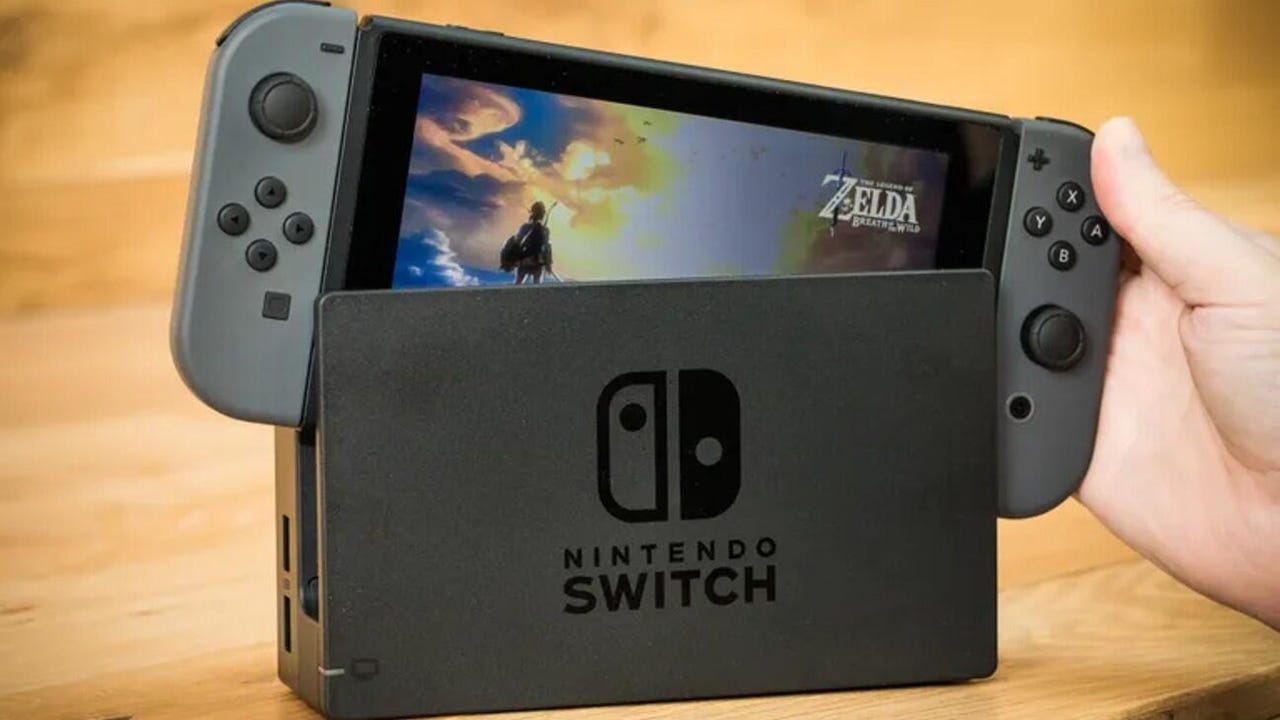
































We'll focus on the original Nintendo Switch, but the OLED version uses the exact same connection process.
Nintendo's Switch was a first-of-its-kind moment in console gaming, bringing together the mobile playability of previous offerings, like theNintendo DS orGameboy line with the motion controls and big-screen compatibility of the Switch.
Brands like Samsung, LG, and TCL have models at different price points to meet your entertainment needs.
Read nowThe company wisely made the process of switching between these two modes as easy as dropping your Switch handheld unit into its included dock.
But, you'll still need to connect that dock's video output to your TV to get started.
Also: The best Nintendo Switch accessories
We're going to show you how to do just that in only a couple of minutes.
You'll need your Nintendo Switch and its included dock, your TV of choice, and an HDMI cable (included with the Switch). The process should only take a couple of minutes, maybe even less.
Your Nintendo Switch connects to your TV through its included dock'sHDMI Out port. This is true for both the original Switch and themore recent OLED model .
For the both the original and OLED docks, you need to pop open a rear door to access this port. Simply place your finger beneath the door and pull until it pops open. Once inside, you'll see the I/O ports shown in the image above, or a nearly identical set of ports for the OLED version.
The only difference in the OLED model is the presence of a "LAN" port in place of the USB port, included in the original Switch's dock.
Michael Gariffo/Both Nintendo Switch models output at 1080p resolution, so just about any decent HDMI cable will be fine for use with them. That said, the original and OLED Switch both include good quality cables, so I'd recommend using them, unless you have a specific need for a longer cable or angled connector.
Review: Nintendo Switch OLED Model
Whichever cable you use, the process is the same. Simply plug one end into theHDMI Out port on the back side of your Switch's dock. Once this is done, and all of your other required cables (power and USB or LAN) are also connected, you can close up the Switch's back panel with your cables routed out of the provided opening.
The flat part of the HDMI connector goes toward the dock, afact that can sometimes be hard to see if you've already put your dock in place in your entertainment center.
Michael Gariffo/The last step needed for this process is to connect the other end of your HDMI cable to your TV. To do this, find the I/O panel for your TV. It's usually on the back or side of the unit. There you should see one or more HDMI ports labeledHDMI In or simplyHDMI, usually with numbers corresponding to the input setting in your TV's menu.
Find an empty port and plug the other end of the cable you connected to your Switch into the TV there. Finally, turn on your TV and set it to the correctinput forthe port you chose,HDMI 1 forHDMI In 1, for example.
Also: The 5 best Nintendo Switch games
Expect the I/O panel on your display to look something like this.
Michael Gariffo/First, check that all connections are secure, including both ends of your HDMI cable and the Switch's power cable. Next, make sure the Nintendo Switch handheld is correctly seated in its dock and powered on. Finally, ensure that your TV is set to the correct input for the HDMI port the switch is connected to, theHDMI 1 input for HDMI In 1, for example. If you confirm all of these aspects of your hardware connection are correct and still don't see output, try a different HDMI cable or HDMI port on your TV as the first of either of these could be faulty. Remaining issues might, unfortunately, include hardware problems with your Switch, its dock, or your TV.
Yes. If you want to hook your Switch up at a friend's house, or vacation home, you don't need to bring your whole dock. However, you will still need some form of adapter. This could bea smaller travel-sized dock , a dongle that connects to the Switch's USB-C port to provide the necessary video and power ports, or evena USB-C to HDMI adapters you already own for your laptop. Just make sure whichever model you choose specifies that it is compatible with Nintendo's Switch.
Unfortunately, there's really no useful way to wirelessly connect your Nintendo Switch to your TV. While you can usea wireless HDMI adapter , you'd still need to connect a wired transmitter dongle to your Switch, which sort of ruins the "wireless" portion of this idea. The Switch also doesn't support built-in casting technologies like Google Cast or Apple's AirPlay. However, you can use your disconnected Joy-Con controllers, or other compatible wireless controllers, wirelessly while your Switch is docked to the TV.
 Hot Tags :
Home Entertainment
Gaming
Gaming Devices
Hot Tags :
Home Entertainment
Gaming
Gaming Devices